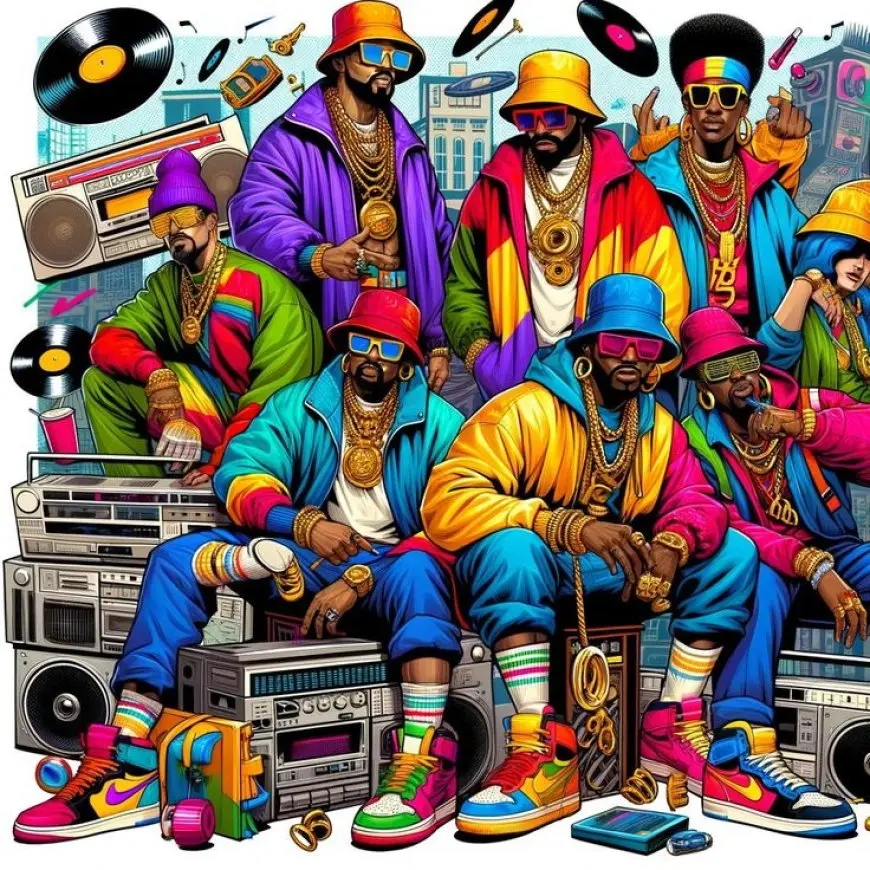Exploring the Impact of Hip-Hop on Global Culture
Exploring the Impact of Hip-Hop on Global Culture

Hip-hop, originating in the 1970s in the Bronx, New York, has transformed from a local subculture to a global phenomenon. Over the decades, this genre of music, combined with its unique fashion, dance, and artistic expression, has influenced cultures across the world. The cultural impact of hip-hop extends far beyond music, affecting various aspects of global society, from language and fashion to politics and social movements. Let’s take a closer look at how hip-hop has made its mark on global culture.
The Rise of Hip-Hop: From the Streets to the World
Hip-hop began as a voice for marginalized communities in New York City, particularly in African-American and Latino neighborhoods. What started as a form of creative expression through rapping, DJing, graffiti, and breakdancing quickly became a movement that resonated with young people worldwide. Through its fusion of music and cultural expression, hip-hop provided an outlet for social commentary and a platform to address systemic inequalities, giving birth to an art form that transcends borders.
Over time, the genre spread across the globe, from Europe to Asia, Africa, and beyond, influencing local music scenes and cultures. Today, hip-hop is one of the most popular and widely consumed genres of music, and its influence continues to shape global youth culture.
Hip-Hop’s Role in Language and Communication
One of the most notable impacts of hip-hop is its influence on language. The slang, expressions, and colloquialisms popularized by rappers have been adopted by millions of people worldwide, shaping everyday speech. From catchphrases like "yo" to terms like "bling" and "swagger," hip-hop has introduced new vocabulary that continues to permeate popular culture.
Moreover, hip-hop has provided a medium for young people to express themselves in ways that feel authentic and relatable. The flow of rap music, with its unique rhythms and wordplay, has inspired new forms of communication, encouraging creativity and self-expression, especially in urban communities.
Fashion and Identity
Hip-hop has long been a major influence on global fashion trends. The oversized pants, graphic t-shirts, hoodies, and baseball caps that characterized the early hip-hop style have evolved into high-fashion statements. Designers and fashion houses often incorporate elements of hip-hop into their collections, blurring the lines between streetwear and luxury fashion. Major fashion brands have collaborated with hip-hop artists, elevating street style to international prominence.
The influence of hip-hop fashion extends to how individuals use clothing to express their identity and status. It is not only a way to showcase personal style but also a way to represent cultural pride, solidarity, and resistance. The connection between hip-hop and fashion continues to grow, with hip-hop artists often being trendsetters for the youth around the world.
Social and Political Influence
Hip-hop has always been a powerful vehicle for social and political commentary. Early pioneers like Grandmaster Flash and the Furious Five used their music to highlight issues such as poverty, crime, and police brutality. As hip-hop gained global popularity, artists from various countries began to use the platform to address local social issues, ranging from political corruption to human rights abuses.
The genre has become an effective tool for activism, with many artists speaking out on behalf of marginalized communities and advocating for social change. Hip-hop has played an important role in movements like Black Lives Matter, with songs becoming anthems for justice and equality. Its ability to amplify the voices of those often ignored by mainstream media has solidified its place as a potent form of cultural resistance.
Hip-Hop and Global Unity
Despite its roots in specific cultural and social contexts, hip-hop has found a way to bring together people from diverse backgrounds. The universal appeal of its beat, rhythm, and message has fostered connections across borders. Hip-hop culture often serves as a bridge, allowing people of different ethnicities, religions, and socioeconomic backgrounds to come together over shared passions.
In many parts of the world, local hip-hop scenes have emerged, reflecting the unique experiences of people in countries ranging from Brazil to Japan. These localized scenes have not only embraced the music but also adopted the ethos of hip-hop, promoting values such as respect, self-expression, and unity.
The Influence of Hip-Hop on Youth Culture
Hip-hop is, at its core, a youth-driven movement. Its appeal to young people stems from its raw energy, creativity, and authenticity. Hip-hop culture has provided a platform for the youth to address their struggles, dreams, and aspirations. By giving voice to their issues, hip-hop has become a reflection of the experiences and challenges faced by young people in today’s world.
Additionally, hip-hop has influenced other forms of youth culture, from dance to visual art. Breakdancing, graffiti, and DJing have all been embraced as artistic forms within hip-hop culture and have inspired new generations to explore creativity and self-expression.
Hip-Hop’s Influence on the Music Industry
In the music industry, hip-hop has influenced not only other genres but also how music is produced and marketed. Hip-hop’s use of sampling, remixing, and beat-making has influenced pop, rock, and electronic music, leading to a blending of genres that reflects the diverse influences of modern music. The rise of hip-hop producers and DJs has also reshaped how music is created, moving from traditional instruments to digital platforms and software.
The business side of hip-hop has also revolutionized the industry, with hip-hop moguls like Jay-Z and Dr. Dre becoming successful entrepreneurs. These artists have turned their music careers into business empires, setting a new standard for how musicians can capitalize on their influence and brand.
The impact of hip-hop on global culture is undeniable. From language and fashion to social movements and political activism, hip-hop has transcended its origins to become a powerful force shaping the way we communicate, dress, and think. As it continues to evolve, hip-hop will undoubtedly remain a vital part of global culture, inspiring new generations to express themselves and make their mark on the world.







